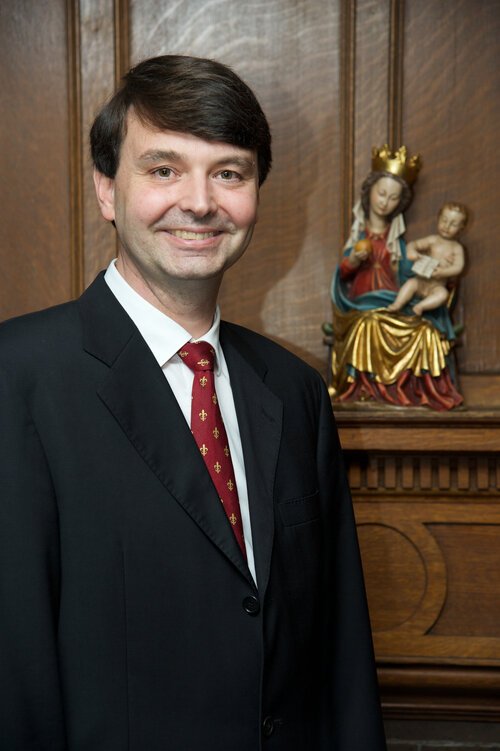Ethics by Polling
Howard Chandler Christy, Signing of the Constitution, 1937.
A mistaken impression among many is that the morality of an act is somehow affected by prevailing opinions or the findings of polls. The views of majorities can lead to changes in laws in democratic governments, but it is equally true that merely because something is legal does not mean it is necessarily ethical. The US Founding Fathers, such as John Adams and James Madison, made this point when they warned of the dangers of a “tyranny of the majority” in democracies.
Since 2001, the Gallup polling company has done what they call their Values and Beliefs poll. Methodologically, they ask the same questions every year to representative samples of the US population, keeping the wording and context unchanged. The polls have yielded disturbing trends. In 2017 this Gallup poll showed record support for the moral acceptability of birth control (91%), gay or lesbian relations (63%), and doctor-assisted suicide (57%). It is a common logical fallacy of those who support birth control to think that such opinion data makes a case for the Church to reverse its teaching that contraception is intrinsically evil.
What makes an act good or immoral is determined by its moral object, the intention of the actor, and the circumstances surrounding it. All of these have to be good or neutral for an act to be ethical. What does not enter in at all is the support society would have for a particular action. The martyrs are heroes of the faith who stood firm for what was right even though it was not popular and required the sacrifice of their lives.
While polling data has no relevance to the objective morality of actions, it can be a good measure of the state of ethical education and the general ethos of a group of people. Public opinion can and does change in response to propaganda and marketing campaigns. We should be quite concerned that special interest groups, the mainstream media, and many educational institutions actively push the public in a more liberal direction. The results of the Gallup polls over time seem to indicate success for their efforts.
Gallup found 82% support for the moral acceptability of in vitro fertilization (IVF) in a 2024 poll. They specify that 63% of those who attend church services weekly approve of IVF while 91% of non-churchgoers do. Interestingly, the pollsters provide a breakdown of responses by US political party affiliation. Unsurprisingly, Democrats are much more favorable to IVF than Republicans. When it comes to the common practice in IVF of “destroying” human embryos (see my essay on why embryos are killed and not destroyed), Republicans and Democrats differ even more significantly. Only 39% of Republicans think this is moral while 65% of Democrats have no moral problem with it. Of those who attend church services weekly, only 33% say it is moral to “destroy” embryos. I personally wonder what the percentage would have been if the word “kill” was used rather than “destroy.”
I was more hopeful when I saw that 64% of Republicans are favorable to extending legal protections to embryos in that same poll. On the opposite side are Democrats who are 73% opposed to legal protections for human embryos. This is an example of how bioethical issues are becoming politically polarized. This is highly unfortunate as right or wrong should not be linked to party membership. Of course, there is also a natural tendency of people to gravitate towards parties that share their ethical stances on key issues.
It is no secret that the Church has a monumental catechetical task before it. The best response would be 100% opposition by Catholics to IVF and all other intrinsically evil acts. Sadly, huge numbers of Catholics are poorly formed in the faith and have a deficient moral education. Helping to form consciences in the area of bioethics is a primary task of The National Catholic Bioethics Center (NCBC). We do so daily when people reach out to us for individual ethics consultations. It is also a privilege to be able to do interviews with Catholic media and to publish on topics in ethics. I am personally excited about a book for children on the formation of conscience that the NCBC hopes to finish by the end of the year.
Thankfully what is licit or illicit is not decided in bioethics by polling ethicists. Catholic bioethics is blessed to have recourse to the authority of the Magisterium of the Church where moral teaching is determined by Sacred Scripture and Tradition as well as the application of ethical principles derived from the natural law. The determination of what is ethical requires careful discernment of the objective nature of a particular act and the circumstances surrounding it. This is especially true when the Church has not yet given a formal judgment regarding a new scientific development. Our Catholic teachings and principles help people discern what to do in difficult circumstances, but it can still be challenging. That is why ethics centers like the NCBC are so useful for the Church.
Joseph Meaney received his PhD in bioethics from the Catholic University of the Sacred Heart in Rome. His doctoral program was founded by the late Elio Cardinal Sgreccia and linked to the medical school and Gemelli teaching hospital. His dissertation topic was Conscience and Health Care: A Bioethical Analysis. Dr. Meaney earned his master’s in Latin American studies, focusing on health care in Guatemala, from the University of Texas at Austin. He graduated from the University of Dallas with a BA in history and a concentration in international studies. The Benedict XVI Catholic University in Trujillo, Peru, awarded Dr. Meaney an honorary visiting professorship. The University of Dallas bestowed on him an honorary doctorate in Humane Letters in 2022.


